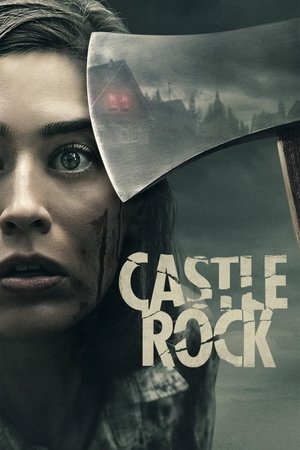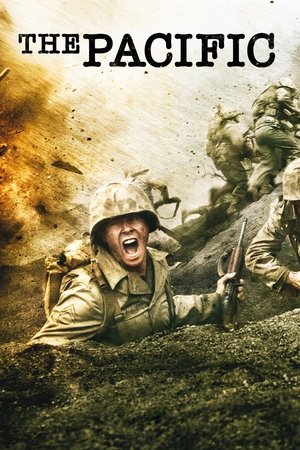Battlefield
Battlefield is a documentary series initially shown in 1994 that explores the most important battles fought primarily during the Second World War but also the Vietnam War. The series employs a novel approach in which history is described by detailed accounts of major battles together with background and contextual information.
Type: tv
Season: 6
Episode: N/A
Duration: N/A minutes
Release: 1994-02-02
Rating: 8.3
Season 1 - Battlefield
1994-02-02
The Nazi German Blitzkrieg's most astonishing triumph, sweeping into the heart of Paris in a few short days, and establishing Hitler's supremacy over Continental Europe.
1994-02-07
The two mightiest air fleets in the world clashed in tumultuous combat over the skies of Britain and the English Channel. The very survival of the English depended on the bravery of the Royal Air Force, of whom Churchill said, " Never was so much owed by so many to so few."
1994-02-16
In a classic naval engagement, the American and Japanese Navies squared off in the carrier-to-carrier Battle of Midway. Both sides knew that the victor would rule the Pacific for decades to come.
1994-02-20
The annihilation of an entire army amidst the charred and frozen ruins of Stalingrad was catastrophe for Nazi arms. Thereafter, the colossus of the Red Army was never to lose the initiative in the East.
1994-02-27
In August 1944, with the battle for the beaches won, Allied troops were advancing through Normandy. The Falaise Gap, southeast of Caen, represented the only remaining escape route for the Germans. In danger of being overrun, the Germans were determined to extract their forces before becoming completely encircled. The subsequent fighting in the hedgerows and fields was intense, as the Allies battled to overcome 150,000 determined Germans. The Gap was finally closed on August 19. Approximately 50,000 trapped German soldiers surrendered. Germans losses, especially of heavy guns and tanks, were catastrophic.
1994-03-01
The furious, climatic last battle of Hitler’s war. Over half a million lives were lost as the Red Army finally crushed the last Nazi citadel.
Season 2 - Battlefield
1996-04-01
1996-04-06
The longest continuous military campaign of WWII, The Battle of the Atlantic raged across the ocean from 1939 till 1945, pitting feared U-boats and other German naval warships against Allied shipping and troop convoys.
1996-04-10
Hitler's plan for the conquest of Russia called for a classic Blitzkrieg offensive, which would be pressed ruthlessly to its conclusion within the course of a single season's campaign.
1996-04-17
When victory in North Africa seemed assured, Allied Planners turned their attention to Italy. The objective was to seize Rome, knock Italy out of the war and push north towards Austria.
1996-04-22
To restore American prestige in the Pacific, President Franklin Roosevelt authorized an invasion of the Philippines, a former American Territory and the scene of a humiliating defeat at the hands of the Japanese in 1942.
1996-04-29
During the last months of 1944, the British and Americans pressed steadily through France and Belgium to the western frontiers of the Third Reich.
Season 3 - Battlefield
1999-01-01
In 1953 the French and Viet Minh forces had been at war for seven years. The climactic encounter of the war occurred at Dien Bien Phu, a small hamlet in northwestern Vietnam, in a battle that neither side could afford to lose
1999-01-01
What starts as a ripple becomes a wave, and with the United States involvement in Vietnam, it began as a contingent of U.S. "military advisors" after the attack at Dien Bien Phu. From there it turned into "non-official combat missions," and finally, after an unprovoked torpedo attack by a North Vietnamese patrol boat against the unsuspecting U.S. destroyer Maddox, it became "The Undeclared War."
1999-01-01
While the method of "search and destroy" is the ultimate goal for any armed conflict, it developed a new face in Southeast Asia during the Vietnam War. With the absence of an actual front line, the North circumvented skirmishes by entering neighboring Cambodia, only to reappear within striking distance of the South stronghold of Saigon. With such bold initiative, the American contingent retaliated with heavily armed helicopter gunships from the U.S. First Air Cavalry Division, thus introducing the world's first helicopter-based military formation at the battle of the La Drang Valley.
1999-01-01
Expanding its presence in 1966, the U.S. Army sets up patrols in the south to draw out Viet Cong guerrillas, but can't force a decisive battle. Included: veterans recall missions to uncover Viet Cong bases; the political climate in Saigon.
1999-01-01
Viet Cong incursions in 1967 prompt the U.S. to reinforce key southern bases, unaware that the North Vietnamese were planning an all-out assault for early 1968. Included: combat footage; comments from veterans.
1999-01-01
Viet Cong guerrillas, backed by the North Vietnamese Army, staged a massive offensive against major cities and U.S. bases in January 1968, during the Tet holiday.
1999-01-01
Unlike the two world wars and the many before, the conflict in Vietnam was void of a so-called front line. Battles were fought in pockets of resistance, with troops dropped in by helicopter. What did exist was the section of the country dividing the North from the South known as the DMZ (De-Militarized Zone). This was often an arena of heavy combat, and Battlefield Vietnam: War on the DMZ highlights such furious fighting as "Operation Hastings" and "Operation Prairie."
1999-01-01
In early 1968, American and allied forces fought the North Vietnamese Army in one of the most dramatic battles of the Vietnam War. For 77 days, two powerful NVA Divisions laid siege to the U.S. Marine Corps base at Khe Sahn.
1999-01-01
The first of two programs on American bombing during the war, concentrates on the campaign prior to 1965, and examines how the Communists responded to U.S. air superiority.
1999-01-01
The air war against the north intensifies as fighting in the south escalates. The U.S. targets North Vietnamese transport and supply routes (some of them in Laos and Cambodia), culminating in the so-called Christmas bombings of Hanoi and Haiphong in December, 1973.
1999-01-01
The Paris Peace Accord finally brought an end to the Vietnam War, and the last U.S. Soldiers left Vietnam on March 29th, 1973. Two years later, Saigon fell to the North Vietnamese Army. Vietnam was reunited.
1999-01-01
The U.S. withdrawal left the South Vietnamese with a well equipped but poorly led army unable to contain the 1974-75 Communist assault that ended in the capture of Saigon.
Season 4 - Battlefield
2000-02-01
In the summer of 1943 more than 2,000,000 men and 6,000 tanks of the German and Soviet Armies faced each other near the Soviet city of Kursk. The ensuing battle was, to this day, the largest tank battle ever fought in history. It marked the last major offensive operation of German forces in the East and, combined with the Soviet victory at Stalingrad, was the decisive turning point on the Eastern Front.
2000-02-19
The Allies were determined to take the war to Germany both to disrupt German war production and weaken civilian morale, and in retaliation for the Nazi terror bombing of England. The "Strategic Bombing Campaign" by the RAF and the USAAF was one of the most controversial campaigns of WWII and cost thousands of Allied lives and caused tens of thousands of civilian deaths.
2000-02-25
The remarkable Soviet victory over the once mighty Japanese Kwangtung Army in the mountains of Manchuria is one of the least known of the Second World War. This was no steam roller triumph of greater numbers and brute force but a victory for superior weaponry, brilliant tactical use of surprise and bold command that was achieved in little more than a fortnight. This is a brand new episode from the landmark television series 'Battlefield'. Featuring fascinating archive footage from all over the world the programme includes a review of the political and military situation before the battle, portraits of leaders and commanders, an explanation of weapons and tactics and the story of the battle itself. Vivid graphics place the battle into the context of the war as a whole.
2000-03-10
The infamous Japanese attack on the US naval base at Pearl Harbour in Hawaii was one of the most significant events of World War II. Though brilliantly planned and executed, and though it dealt a crippling blow to the US Pacific Fleet, it failed to inflict any damage on the US aircraft carriers. Moreover, the attack brought the US and its industrial might into the war with disastrous consequences for the Axis powers.
2000-04-01
Guadalcanal was the first major land battle of the Southern Pacific campaign. The island was considered key to the defence of eastern Australia and was the first step in the "march" up the Solomon Island chain to neutralize the key Japanese base at Rabaul, open up the road to the Philippines, and ultimately to Japan itself.
2000-05-01
This is the story of one of Second World War's most harrowing episodes. The 890 day siege of the Soviet Union's second city has come to epitomise the misery, suffering and savagery of the war on the Eastern Front. The city was not finally liberated by Soviet troops until 19th January 1944 - by that time 600,000 of its citizens had starved to death and 200,000 more had perished in the bombing. This is a brand new episode from the landmark television series 'Battlefield'. Featuring fascinating archive footage from all over the world the programme includes a review of the political and military situation before the battle, portraits of leaders and commanders, an explanation of weapons and tactics and the story of the battle itself. Vivid graphics place the battle into the context of the war as a whole.
Season 5 - Battlefield
2001-03-06
The campaign in Tunisia saw the battles that finally ended the brutal war in the desert. The arrival of the British 1st Army gave the Allies a six-to-one numerical advantage in troops and a fifteen-to one superiority in tanks, guns, and aircraft. The Allied blockade in the Mediterranean also began to bite, making the beleaguered Germans short of fuel, food, and ammunition. Eventually, all German troops in Tunisia surrendered.
2001-03-19
Covering the leaders, the equipment, and the men, as well as the battles, it covers the period from the beginning of the war in Africa until the end where the Axis is expelled. The main battle covered here is the last battle of El Alamein.
2001-04-15
Covering the entire Italian campaign including the battle of Monte Cassino.
2001-04-20
This is the story of the construction and defence of Hitler's three-mile deep web of fortifications, pillboxes, troop shelters, and anti-tank obstacles that ran along Germany's western frontier. "The Siegfried Line," as it was nicknamed by the Allies, and the natural barrier formed by the Rhine River, were key to Germany's defence of its Western Front. The breaching of the Siegfried Line at the Battle of the West Wall, and the subsequent crossing of the Rhine barrier at Remagen, heralded the collapse of German resistance in the West.
2001-05-12
This episode tells the tragic story of the "bridge too far" and the ill-fated Operation Market Garden--the Allied operation that was supposed to end World War II in 1944. Montgomery's rather fanciful conclusion that Market Garden was "90% successful" was hardly supported by the facts. The operation was an unmitigated failure.
2001-06-01
Caen, perhaps the greatest major obstacle for the Allied advance inland after the landings in Normandy, 6 June 1944. Consequently it was a key objective for 3rd British Div. landing on Sword Beach. The Allies were unable to capture the strategically important city on D-Day in the teeth of armoured counter-attacks from 21st Panzer Div. Renewed attempts by 3rd Canadian Div. on 7-8 June were foiled by 12th SS Panzer Div. 'Hitlerjugend', as were 7th British Armoured Divs. thrusts towards the city on 11-14 June. On 25 June Operation 'Epsom' was launched to take Caen. Preceded by RAF Bomber Command attacks, further British & Canadian assaults on 4 July stalled before the whole of the city could be taken. On 7 July Operation 'Charnwood' forced the Germans to withdraw from northern Caen. Heavier bombardment opened Operation 'Goodwood' on 18 July, in the course of which the Canadians finally managed to liberate the rest of Caen, by now largely demolished after five weeks of intensive fighting.
Season 6 - Battlefield
2002-03-01
Hitler's obsession with the Crimea was the source of fierce disagreements with his General staff, who, according to the Fuhrer, 'knew nothing about the economics of war'. So it was that the German 11th Army under Manstein broke through the Soviet lines in October 1941 - but this was only the beginning of a series of bloody battles that cost the Russians two whole armies. For his bombardment and capture of Sevastapol, Manstein was promoted to Field Marshal. However, the tide turned after the disastrous German defeats at Stalingrad and Kursk. Cut off and isolated in the Crimea, the Germans faced massive Russian attacks and Sevastapol surrendered - against Hitler's orders - in May 1944. Twelve German and Rumanian divisions were completely destroyed and 25,000 prisoners were taken.
2002-04-29
A vicious 14-week war between the Finns & the Russians ended in March 1940, the Finns finally surrendered a large part of its territory to the Soviet invaders. 500,000 were evacuated from the Karelian isthmus, the scene of the war's worst fighting. It was a hollow victory, as the Russians took a drubbing from the determined & resourceful Finns, who organised the defence of their country brilliantly. Nearly 1 million Russians lost their lives during the fighting & the weaknesses of the Red Army was exposed to the. Hitler was suitably encouraged, he was determined on the invasion & conquest of his erstwhile allied partner. Meanwhile, during the early months of the war, Hitler became increasingly aware of the potential threat of Norway & mounted the world's first airborne invasion there in February 1940. At the same time, German Forces invaded Denmark. Over the next few years, the horrors & intrigues of the Quisling government in Norway unfolded amidst determined Norwegian resistance.
2002-05-01
The convoys that sailed across the Atlantic Ocean bringing vital supplies to Britain faced one of the most deadly threats of the war. Hidden deep beneath the waves were German U-boats. This program follows the evolution of the Atlantic War, from the beginnings of the U-Boat war, to the "Happy Time" when German submarines almost brought Britain to her knees, to the eventual Allied triumph for control of the Atlantic sea-lanes. Also see the critical role that superior Allied technology played in winning the war and how British cryptographers successfully broke the German naval codes.
2002-06-02
The battle for Okinawa, chosen to be the final springboard for an Allied invasion of Japan, claimed more American lives than any other battle in the Pacific campaign. The Japanese had constructed a formidable series of defences and were prepared to fight for every inch of the island's soil. The battle included a 700-plane Kamikaze raid against the US naval fleet. US casualties were estimated to be 49,000. Ultimately US forces took control of the island in June 1945 and in August, the atomic bombing of Hiroshima and Nagasaki brought the war against Japan to a dramatic end.
2002-05-29
In August 1943 the Romanians--no doubt prompted by merciless Allied bombing--changed sides. Thereafter, events moved swiftly: the Russians soon captured the vital Ploesti oil fields, a huge loss to the German war effort, and within days the Soviets captured Bucharest. A nervous Bulgaria sued for peace with the Allies, but the Russians pushed on into Sofia. Despite German delaying tactics, Hungary fell next. In Yugoslavia the Germans held grimly on to Belgrade until October. The bloody mop-up fighting was left to the Soviets and lasted until the end of the war.
2002-01-01
This is the story of the crucial battles for control of the Mediterranean, North Africa, and the irreplaceable oil fields of the Middle East. The program covers the great battles between the Italian Navy and British Navy, the land campaigns in the North African desert between Rommel's Afrika Korp and the British 8th Army, and Britain's struggle to retain its control of Malta. Additionally featured is the war for control of the skies between the German Luftwaffe and the RAF, eventually joined by the US Army Air Force, and the story of the war in Greece.
YOU MAY ALSO LIKE



















